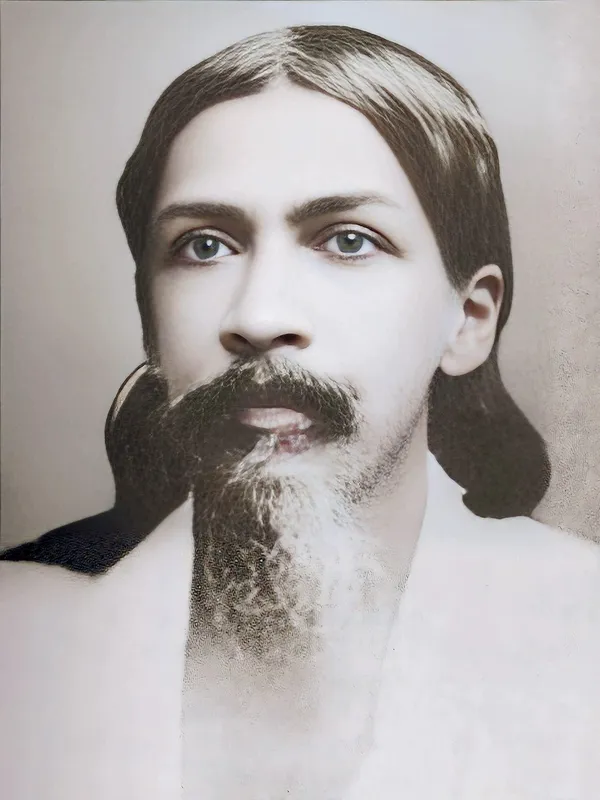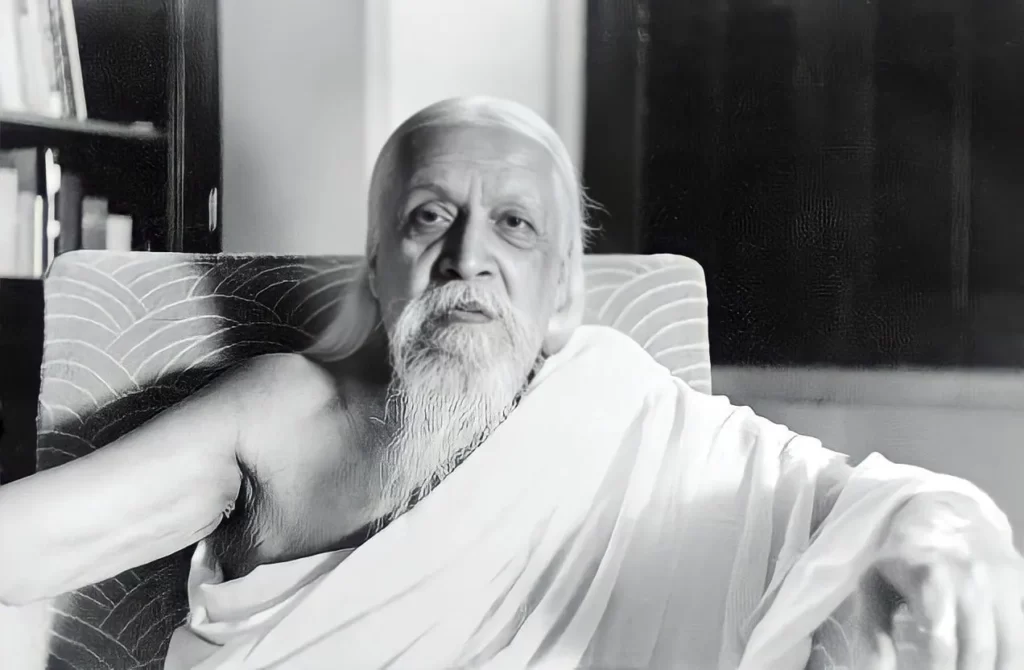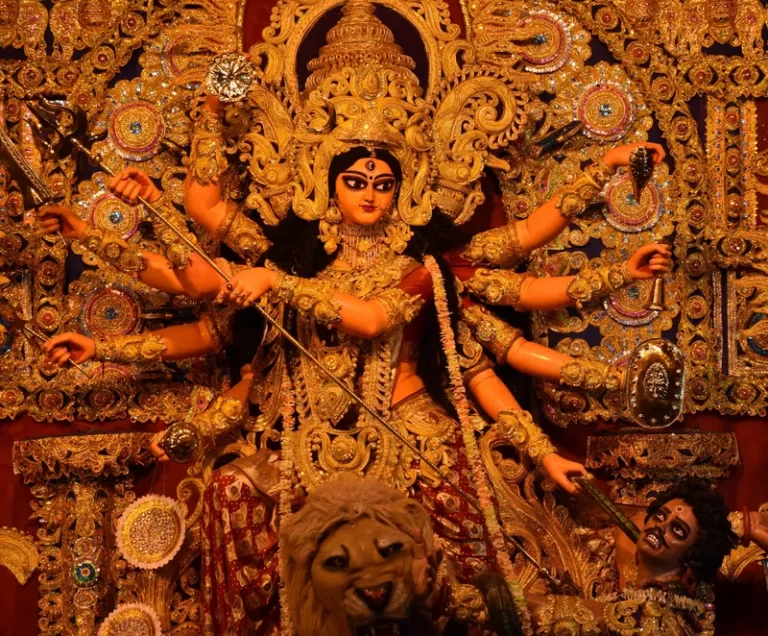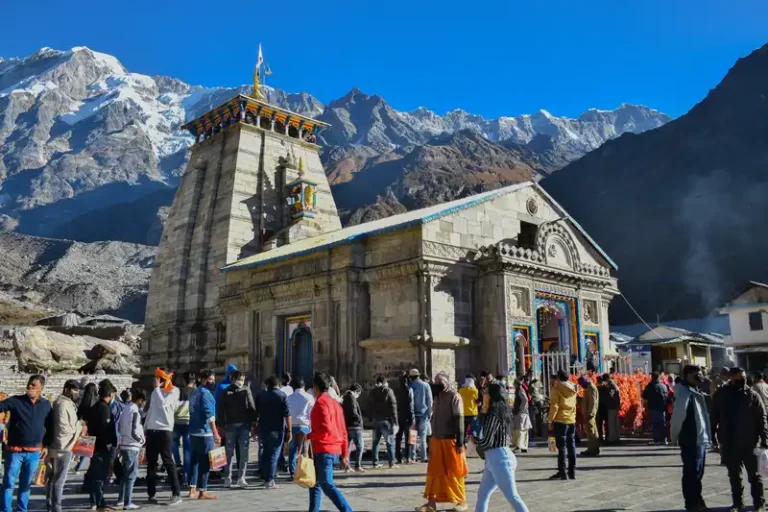Sri Aurobindo – His Life, Sublime Teachings, And Amazing 40 Quotes

Introduction:
Sri Aurobindo, a diverse Indian illuminating presence including jobs as a thinker, writer, yogi, master, and profound coach, graced the world stage. Brought into the world on August 15, 1872, in Calcutta, India, he accepted his schooling in Britain at St. Paul’s School, London, and Ruler’s School, Cambridge. Upon his re-visitation to India in 1893, he expected a showing position at the Maharaja’s School in Baroda, consequently falling in line with the Indian National Congress.
At first, Aurobindo dug into extremist political exercises, bringing about his capture and detainment in 1908 because of his connection with a revolutionary group. During his detainment, an otherworldly revelation diverted his concentration toward the domains of yoga and contemplation.
Aurobindo pulled out from the world, submerging himself in spiritual pursuits. In Pondicherry, he established an ashram wherein he lived together with his profound colleague, Mirra Alfassa (The Mother), and a committed pupil local area.
Aurobindo’s profound structures, incorporating verse, reasoning, and translations of the Vedas and Upanishads, have permanently formed India’s social and spiritual ethos, reverberating worldwide. He left for his heavenly abode on December 5, 1950, in Pondicherry, India.
Sublime Teachings of Sri Aurobindo:

Aurobindo’s lessons complicatedly wove together spiritual and practical presence, stressing the combination of awareness advancement and cultural transformation. At his center was the conviction that human reason finished in perceiving the heavenly quintessence both inside oneself and in the texture of the universe.
According to Sri Aurobindo, the Vedic images remained as confounding encapsulations of the significant spiritual verities, outperforming regular human understanding. As far as he might be concerned, these images rose above simple wonderful, or figurative articulations, having a substantial mooring in the otherworldly domain.
For Sri Aurobindo, the Vedic images filled in as a channel between the seen and concealed, the human and the divine. Their motivation reached out to hoisting human keenness past its limits, spanning the abyss between the mortal world and the disguised otherworldly reality.
He viewed the Vedas as a store of supernatural insight and otherworldly keenness, uncovering bits of knowledge into the heavenly, universe, and human quintessence. Through Vedas’ examination and reflection, Sri Aurobindo accepted one could plumb the profundities of profound bits of insight supporting presence.
In his understanding of Vedic images, Sri Aurobindo frequently uncovered the significant otherworldly meanings covered inside the shallow structures. As far as he might be concerned, the Vedas comprised a dynamic, steadily developing inheritance, versatile to take care of the requirements of progressive times and ages.
Inside the Vedic heredity, yajna encapsulates a formal demonstration of penance and offering, conveying the conviction of giving otherworldly compensations to its members. Sri Aurobindo, knowing the significant embodiment, observed yajna as an impression of the essential profound longing and transformation basic for cognizance development.
Aurobindo’s vision saw yajna as a mental journey of benevolence and giving up. Here, the self-image and lower self-track down oblation to the higher self or the Heavenly. The excursion involves interior speculative chemistry, refining the inward being while at the same time supporting profound excellencies like dedication, magnanimity, and separation.
He focused on that yajna is definitely not a shallow ceremony but a significant inward work on requesting sincere devotion. As far as he might be concerned, this training supports rising above restrictions, overcoming egoic limits, and climbing to loftier domains of mindfulness.
In Aurobindo’s look, yajna spreads out as a timeless, versatile image, amicably material across different profound precepts and philosophies. It remained as an essential feature of the Vedic legacy, all the while offering pertinence and worth to searchers traversing a scene of foundations and societies.
Prestigious for his significant examination of the Bhagavad Gita, Aurobindo hailed it as a compass for spiritual explorers. In his eyes, the Gita agreeably blended different yogic courses – wisdom (jnana yoga), activity (karma yoga), and devotion (bhakti yoga). His accentuation resounded around these ways at the last meeting towards the acknowledgment of the resolute solidarity between the singular soul and the heavenly.
Aurobindo observed in the Gita a commonsense compass for those leading India’s freedom development. He imagined Gita’s lessons as a format versatile to sociopolitical commitment, cultivating a clever kind of profound patriotism rising above strict limits. The guideline of activity without connection to results resounded significantly, with Gita’s convention of separation offering a course to inside liberation even in the midst of outside battles.
Sri Aurobindo’s impact promoted the Hindu Renaissance, supporting India’s profound legacy as the bedrock for innovation. He supported the resurgence of familial insight and its combination with contemporary ethos and practices.
Aurobindo saw Hinduism as a dynamic, steadily developing custom fit for acclimatizing current logical and philosophical advancement. His conviction reached out past India, imagining the country as a profound aide as well as a core of logical and innovative headway on the worldwide stage.
This renaissance wasn’t encircled by topographical limits; Aurobindo accepted India’s otherworldly and social heritage could encourage worldwide solidarity. His thoughts, a power unendingly forming Indian and global scholarly scenes, rise above reality.
Works by Sri Aurobindo:
Sri Aurobindo wrote extensively on a wide range of topics, including philosophy, spirituality, poetry, politics, and education. Some of his most well-known works include:
The Life Divine
The Synthesis of Yoga
Savitri: A Legend and a Symbol
The Secret of the Veda
The Human Cycle
The Ideal of Human Unity
Essays on the Gita
Letters on Yoga
The Renaissance in India
The Future Poetry
These are just a few examples of Sri Aurobindo’s many works.
Sri Aurobindo and Auroville:

Laid out in 1968 by Mirra Alfassa (The Mother) and planner Roger Outrage, Auroville remains as a trial municipality settled in Tamil Nadu, India. Imagined as a worldwide shelter, its motivation rises above the limits of identity, race, and confidence, imagining an amicable conjunction. Its beginning exudes from the lessons of Sri Aurobindo and The Mother, diagramming a course for an intentionally developed human race.
Homes in Auroville hail from north of 50 countries, working under the administration of the Auroville Establishment, directed by the Indian Service of Human Asset Improvement. The town blossoms with a supportable economy, moored in eco-accommodating enterprises like farming, crafts, and environmentally friendly power.
Noted for its cooperative engineering, Auroville’s designs merge consistently with the encompassing normal territory. Most strikingly, the Matrimandir, a shining brilliant sphere, orders consideration as a reflective core for the occupants and guests, epitomizing Auroville’s particular character.
Sri Aurobindo and his Uttarpara Speech:
The Uttarpara Discourse, followed through on August 30, 1909, by Sri Aurobindo following his quittance in the Alipore Bomb Case, stands firm on an original footing as India continued looking for freedom from the English domain.
Sri Aurobindo enlightened India’s otherworldly and social legacy, pushing a resurgence to revive energy and confidence. He navigated the role of violence in the struggle, accentuating non-violence as a conduit to freedom.
The discourse’s importance dwells in Sri Aurobindo’s admonishment for otherworldly and social resurrection as the key part of public renaissance and independence. He supported India’s spiritual and social inheritance as its vital strength, the very establishment to be saddled for a prosperous, free future.
The Uttarpara Discourse remains an energetic verbalization of Sri Aurobindo’s vision for India, arousing activity toward opportunity and flourishing. It remains a verifiable confirmation and a wellspring of inspiration for ages endeavoring to shape a more promising time to come for them as well as their country.
Supramental Being:
Sri Aurobindo embraced the idea of the Supramental Being, which he saw as the zenith of human potential, denoting the resulting period of advancement. The Supramental Being embodied raised cognizance, information, and ability.
To Sri Aurobindo, the rise of the Supramental Being would result from a transformative profound cycle. This development would involve a significant change in cognizance for people, working with the exemplification of the Supramental’s credits and limits. Such a change suggested rising above the egoic self, birthing a novel, raised cognizance.
The Supramental Being, in Sri Aurobindo’s way of thinking, connotes a transformative jump. It conveys the commitment to rising above substantial and mental imperatives, empowering fellowship with expanded reality. This change relies on committed yogic practice and profound discipline, with the possibility of introducing a time portrayed by serenity, accord, and otherworldly edification in human progress.
Amazing 40 Quotes of Sri Aurobindo:
- “Attaining true knowledge is not a matter of thinking. It is about who you are and who you become.”
- “Others may boast of their love for God, but I boast that it was God who loved me, sought me out, and made me belong to Him.”
- “No one can enter heaven without first passing through hell.”
- “What is God, ultimately? A timeless child playing an eternal game in an infinite garden.”
- “A God who cannot smile could not have created this amusing universe.”
- “The whole world longs for freedom, yet each creature is attached to its chains. This is the first paradox and an inescapable knot of our nature.”
- “Often, altruism is simply the most elevated form of selfishness.”
- “When the mind is still, truth has the opportunity to be heard in the purity of silence.”
- “Your stumbling leads to the world’s perfection.”
- “Live according to Nature,” says the maxim of the West; but which nature should we follow: the nature of the body or the nature that transcends the body? We should first determine this.”
- “The primary principle of genuine teaching is that nothing can be imparted through instruction.”
- “To perceive clearly, one must step away from the center of the image.”
- “I realized too late that Wisdom emerges only after Reason has perished; before my emancipation, all I had was knowledge.”
- “The one who selects infinity has been selected by infinity.”
- “Our real adversary is not any force external to us, but our own glaring weaknesses: our timidity, our self-centeredness, our deceit, our short-sighted emotions, and our sentimental delusions.”
- “Live internally; do not be disturbed by external events.”
- “Love is the melody, Bliss is the rhythm, Understanding is the performer, the Eternal All is the composer and audience.”
- “The practice of Yoga confronts us with the intricate complexity of our own existence.”
- “My divine entity is love and endures all things sweetly.”
- “The strong stand-alone with the might of their being, given by God.”
- “Our human knowledge is like a candle burning on a dim altar, compared to the vast sun-like Truth.”
- “Rise above yourself, for as a man, it is in your nature to become more than yourself.”
- “Sin and virtue are a game of resistance we play with God in His efforts to draw us towards perfection.”
- “The Atheist is God playing at hide and seek with Himself; but is the Theist any other? Well, perhaps; for he has seen the shadow of God and clutched at it.”
- “Genius discovers a system; average talent stereotypes it till it is shattered by a fresh genius.”
- “Transform reason into ordered intuition; let all of yourself be light. This is your goal.”
- “Sadhana must be done for the total manifestation of the Divine in oneself.”
- “Do not belong to the past dawns, but to the noons of the future.”
- “Evolution is not finished; the reason is not the last word, nor is the reasoning animal the supreme figure of Nature. As man emerged out of the animal, so out of man the superman emerges.”
- “War is a dangerous teacher, and physical victory often leads to moral defeat.”
- “The pain that breaks the shell of your understanding is the very pain that reveals to you the truth of your being.”
- “Only the few who have purified their souls can walk in the radiance of the divine light.”
- “My love is not a human emotion, but a divine force that flows through me and back to its source.”
- “All disharmony in the world is ultimately a result of the disharmony within ourselves.”
- “The soul, seeking new experiences, is drawn to the thrill of the unknown and the mysteries of ignorance.”
- “The practice of Yoga aims to unite the individual self with its higher, universal self and origin.”
- “Beyond the limitations of the human mind lies a higher consciousness, waiting to be explored.”
- “The existence of poverty is a reflection of the injustices and flaws in our society, and our attempts to address it through charity are a belated acknowledgment of this fact.”
- “True knowledge is not based on appearance, preconceived notions, or opinions, but on direct experience and perception of the soul.”
- “The Vedas were intended for the priests to perform rituals, while the Vedanta philosophy was intended for the spiritual seekers.”
Conclusion:
Sri Aurobindo remains as a significant illuminator in India’s cutting-edge profound and philosophical embroidery. His composed inheritance, crossing yoga, otherworldliness, and theory, has resounded worldwide, making a permanent imprint on researchers and professionals the same.
Vital yoga, a foundation of Sri Aurobindo’s commitments, epitomizes the combination of human instinct and cognizance in the quest for spiritual headway. His accentuation on private internal development and the synchronous change of society and the world mirrors an all-encompassing vision.
His works have a contemporary reverberation, offering a far-reaching way to deal with the difficulties defying mankind. Sri Aurobindo’s points of view envelop the investigation of direction, the otherworldly excursion, and the basics of cultural and ecological change. His experiences on cognizance development, the interconnectedness of presence, and the transformation of both human instinct and society act as a wellspring of motivation for those exploring individual and aggregate missions for development, importance, and bearing.
I seek for this article to furnish you with help. Would it be a good idea for you to find esteem inside these words, and generously mull over imparting them to your friends and family. For additional noteworthy substance much the same as this, I urge you to dive into our site. Moreover, I stretch out an encouragement to subscribe to my YouTube feed for approaching materials of a comparative nature. Wishing you a marvelous day ahead!
हरि ॐ तत्सत्
FAQs:
Frequently Asked Questions (FAQs) about Sri Aurobindo:





